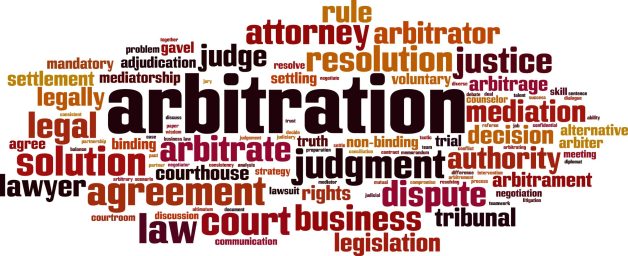En el vertiginoso mundo actual, la demanda de una resolución de litigios eficiente y eficaz es más acuciante... Arbitration services offer a compelling alternative to traditional courtroom battles, providing a path to resolve conflicts that is both time-saving and cost-effective. This form of alternative dispute resolution (ADR) has gained significant traction in the realms of civil and criminal law, serving as a testament to its versatility and effectiveness in addressing a wide range of disputes.
At the heart of arbitraje lies the principle of neutrality, where an impartial third party—the arbitrator—deliberates on the evidence presented by both sides before making a binding decision. Unlike the public and often prolonged process of litigation, arbitration proceedings are private, allowing the parties involved to maintain confidentiality over sensitive matters. This aspect is particularly appealing to businesses and individuals seeking to protect their reputation while navigating the complexities of legal disputes.
En marco jurídico governing arbitration is robust, underpinned by laws and regulations that ensure the enforceability of arbitration agreements and awards. In jurisdictions like the United States, the Federal Arbitration Act provides the legal basis for the enforcement of arbitration agreements, highlighting the country’s support for this efficient dispute resolution method. Furthermore, international arbitration agreements are supported by conventions such as the New York Convention, which facilitates the recognition and enforcement of foreign arbitration awards, thereby promoting global business and investment.
Arbitration’s scope extends across various sectors, including commercial disputes, labor relations, consumer complaints, and even certain aspects of family law. This breadth underscores the adaptability of arbitration to different legal needs and preferences, offering a tailored approach to dispute resolution that courts often cannot provide. For businesses, in particular, arbitraje can be a strategic choice to avoid the unpredictability and rigidity of court rulings, opting instead for a process that allows for the selection of arbitrators with specific expertise relevant to the dispute at hand.
One of the key advantages of arbitration services is the speed at which disputes can be resolved. Without the procedural formalities and backlogs that plague court systems, arbitration can offer a quicker path to resolution, allowing parties to move forward without the burden of prolonged legal battles. This efficiency is not only beneficial for the immediate parties involved but also contributes to the overall effectiveness of the legal system by reducing the load on courts.
Despite its many benefits, arbitraje is not without its critics. Some argue that the private nature of arbitration can lead to a lack of transparency and potentially uneven power dynamics, especially in cases where there is a significant disparity between the disputing parties. Moreover, the binding nature of arbitration decisions, while contributing to the finality of disputes, can limit parties’ ability to appeal decisions that they find unfavorable.
To navigate these challenges, parties considering arbitration should seek comprehensive asesoramiento jurídico to understand the implications fully and ensure that their rights are protected. Legal professionals specializing in arbitration can provide invaluable guidance on drafting arbitration agreements, selecting arbitrators, and formulating strategies that align with the parties’ objectives and legal rights.
As the legal landscape continues to evolve, arbitration services stand out as a dynamic and practical solution to dispute resolution. With its promise of efficiency, privacy, and flexibility, arbitration represents a modern approach to legal conflicts, embodying the principles of fairness and accessibility that are fundamental to the justice system. As more individuals and businesses turn to arbitration to resolve their disputes, it is clear that this method will continue to shape the future of legal proceedings, offering a viable alternative to the traditional pathways of conflict resolution.
Arbitration is a process in which a neutral third party, called an arbitrator, resolves a dispute between two or more parties. It is a voluntary process that can be used to resolve a wide range of disputes, including:
- Litigios comerciales
- Litigios contractuales
- Conflictos laborales
- Real estate disputes
- Reclamaciones por daños personales
- Intellectual property disputes
- What is arbitration? Arbitration is a process in which a neutral third party, called an arbitrator, resolves a dispute between two or more parties. The arbitrator does not make decisions for the parties, but rather listens to their arguments and evidence and then makes a decision.
- When do you need arbitration? You may need arbitration if you are facing any of the following:
- Tiene una disputa con alguien y no llega a un acuerdo sobre la solución
- Quiere evitar ir a juicio
- Quiere mantener una buena relación con la otra parte
- Desea resolver el litigio de forma rápida y eficaz
- What are the advantages of arbitration? Arbitration has several advantages over going to court, including:
- It is faster and more efficient than court
- It is more confidential than court
- It is more flexible than court
- It is more cost-effective than court
- What are the disadvantages of arbitration? Arbitration also has some disadvantages, including:
- The arbitrator’s decision is final and binding
- The arbitrator may not be as familiar with the law as a judge
- The arbitrator may not be as impartial as a judge
Arbitration is a valuable tool for resolving disputes. If you are in a dispute, it is important to consider arbitration as an option. An arbitrator can help you resolve the dispute quickly and efficiently, and in a way that is fair to both parties.









